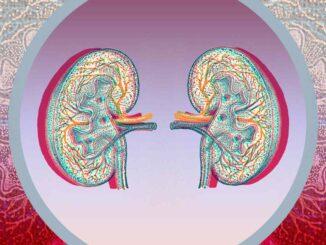
Last Updated on by lizzy
Alzheimer’s disease is a neurodegenerative disorder characterized by progressive cognitive decline, memory loss, and impaired daily functioning. It affects millions of individuals worldwide and has a significant impact on individuals, families, and society as a whole.

What Causes of Alzheimer’s
Genetic Factors
Certain gene variants, such as the APOE-e4 allele, have been found to increase the risk of developing the medical condition. These genes play a role in the regulation of amyloid protein accumulation and tau protein abnormalities in the brain.
Environmental Factors
Environmental factors, such as exposure to toxins, air pollution, and certain metals, have been suggested as potential risk factors for Alzheimer’s disease. Chronic inflammation, oxidative stress, and vascular health may also play a role in disease development.
Risk Factors for Alzheimer’s
Age
Advancing age is the most significant risk factor for Alzheimer’s disease. The risk increases significantly after the age of 65, and the prevalence doubles approximately every five years thereafter.
Family History and Genetics
Having a family history of Alzheimer’s increases the risk of developing the disease. Individuals with parents or siblings who have been diagnosed with the condition are more likely to develop it themselves.
Lifestyle Factors
Certain lifestyle choices can impact the risk of Alzheimer’s disease. These include physical inactivity, a diet high in saturated fats and processed foods, smoking, excessive alcohol consumption, and limited mental and social stimulation.
Symptoms of Alzheimer’s
Early Stage Symptoms
In the early stages of Alzheimer’s, individuals may experience:
- Subtle memory lapses.
- Difficulty finding the right words
- Challenges with problem-solving
- Concentration and mild mood changes.
Moderate Stage Symptoms
As the disease progresses to the moderate stage,:
- Memory loss becomes more pronounced, affecting recent events and personal information.
- Difficulty performing familiar tasks.
- Exhibit confusion and disorientation.
- Experience changes in personality and behavior.
Severe Stage Symptoms
In the severe stage individuals may:
- lose the ability to communicate coherently, recognize loved ones, and perform basic self-care tasks.
- Become entirely dependent on others for their daily needs.
Treatment Options for Alzheimer’s
Medications
Cholinesterase inhibitors, such as donepezil, rivastigmine, and galantamine, are commonly prescribed to manage cognitive symptoms in the patients. These medications work by increasing levels of acetylcholine, a neurotransmitter involved in memory and learning.
Other Therapies
These include occupational therapy, speech therapy, and cognitive stimulation programs aimed at maintaining cognitive function and promoting independence.
Lifestyle Modifications
Certain lifestyle modifications have shown promise in managing Alzheimer’s symptoms and potentially reducing the risk of disease progression. These include regular exercise, a balanced diet rich in antioxidants
Related Posts
Understanding and Nurturing Mental Health






Leave a Reply